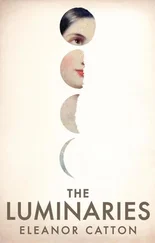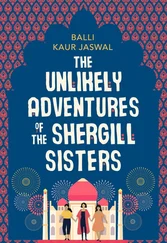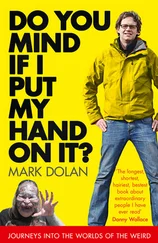‘That’s great!’ Bean answered, too cheerfully. She felt stymied by her inability to engage her powers of flirtation, Puck without his love spell flowers. It was great, actually, that the church had a new Father; the last one had passed his sell-by date years ago, but had hung stubbornly on, boring the populace with his creaky Christmas services long after Bean had departed for less green pastures. But she didn’t want to say that. ‘My parents go there. To Saint Mark’s.’
Aidan nodded. ‘You’re Dr Andreas’s daughter, right? Your father read for us a few Sundays ago. He’s an excellent speaker.’
This is true. Years of lecturing has created a monster of a presenter – his voice dips and swoops like a roller coaster, flashing forward at important moments like fireworks, and then retreating back, pulling his audience with him. His overgrown eyebrows wiggle, Marx-like, and he spreads his broad hands across the podium, as if he has to struggle to hold the papers down, lest his high-minded thoughts spirit them away.
‘Thanks,’ Bean said, though none of this is to her, or our, credit.
‘How’s your mother? She’s got chemotherapy in a few days, doesn’t she?’
Bean took a step back, surprised at the question. She’d forgotten how involved our parents were in the church – how they’d raised us to be involved in the church, too, not that it had stuck, particularly. She didn’t think about God a lot. None of us did. He was just there if we needed him. Kind of like an extra tube of toothpaste under the sink.
‘She’s okay. She says she’s tired. But that’s to be expected. And, you know, now I’m here to help.’ Bean was fairly pleased at putting forth this idea of herself as a latter-day (if better-dressed) Florence Nightingale to a clergyman.
‘So, I’ll see you for services, then?’ Aidan asked, bending over to hoist his books under his arm. His hand, broad and dusted with gold hair, spread easily over the span of the covers, and Bean stared at it while she concocted an answer. She hadn’t been to church in years, other than when she came home for Christmas, which hadn’t been often. Our parents had wanted us to believe, but they had also taught us, outside of church, to question nearly everything. It has never made a great deal of sense that our father, a man who spends his days analysing the most finite syllables contained in one book, should so easily accept the even less believable tenets of another. And this is part of the reason why the mystery of faith has escaped all of us, and why Bean – why none of us – had ever bothered to make even a pretence of making church a regular part of our adult lives.
But it’s not like she had any other pressing engagements, right?
‘What the hell,’ she said. ‘I mean, yes.’ Aidan looked at her oddly for a moment while she blushed again – twice in only a few minutes, a record – and then he smiled and said goodbye, heading out the doors into the sunshine.
‘Would you like to check anything out today?’ Mrs Landrige asked, settling back down into the repetitive stamp, stamp, stamp of making due date cards.
‘No thank you,’ Bean said. ‘I have to meet my sister.’
At least we made good excuses for each other.
The next night, Rose was sitting on her bed, watching dust motes dance in the air while she dialled Jonathan’s number. ‘Right on time,’ Jonathan said, picking up the phone an ocean away.
Rose and Jonathan had a scheduled once-a-week phone call. Not very romantic, Cordy might say.
Practical, Rose would reply.
‘I miss you,’ she said, sighing at the sound of his voice. She walked over and closed the door to her room. These conversations always seemed both too much and too little – how could she be sure that he wasn’t doing something else while they talked? How could she be sure that he really was happy to talk to her? The distance was both amplified and removed over the wire.
‘I miss you, too, love. How are you?’
‘Okay. Bean’s home.’
‘The prodigal sister returns? It must be nice to have her around.’
Rose whuffed out a breath of annoyance. Jonathan didn’t understand us. His family was huge and boisterous and loving – six siblings, now multiplied exponentially by marriages and children. Visiting his parents’ house at Christmas had felt like being surrounded by a litter of overly enthusiastic puppies. ‘Not really. She doesn’t do much. Just lies around and reads. She’s no help with Mom.’
‘How long is she staying?’
‘That’s the funny thing. She quit her job. Moved all her stuff home. Like she’s staying forever.’
‘That is funny.’ Jonathan and Bean had met at Thanksgiving, and had, oddly, hit it off. Rose had felt a little sick at the prospect of introducing our most femme fatale sister to him, but Bean had been perfectly appropriate, entertaining him with spot-on New York accents and cursing an amusing blue streak through card games they played ’til the wee hours of the morning. ‘I’d always thought she’d be a city girl forever.’
‘Me, too,’ Rose said. ‘I think something’s wrong, actually, but she won’t say anything to me. I tried to bring it up and she bit my head off.’
‘Give her time. If something really is wrong, if it’s enough to send her away from there forever, it’s probably pretty bad.’
‘But I could help,’ Rose said plaintively.
Jonathan laughed. ‘That’s my little Miss Fix-It. Never met a problem she couldn’t lick.’
‘Don’t tease. I’d like to help, if she’d let me. She offered to go with me to buy a wedding dress.’
‘Take her up on it. You hate shopping, she loves it. Perfect.’
Rose looked out the window. Our father and Bean were sitting on the chairs on the back porch, reading side by side. ‘Am I going to need it?’
‘A wedding dress? Of course you are. Unless you’ve got something to tell me.’
‘No, it’s not me. I just thought . . . I don’t know, I don’t feel right about this whole thing. What if you meet someone there? What if you decide you don’t miss me at all? What if you don’t want to come back?’ Rose lay back on her bed, burying her face in the pillow, ashamed at having exposed so much of her fear, and too afraid not to ask.
‘Rose.’ Jonathan’s voice was soft, but firm. ‘You are the one I love. You. I’ve been waiting for you my whole life, and I’m not going to give you up now. I miss you so much, and there’s nothing I want more than to make you my wife. And that’s not going to change. Got it?’
‘But you could decide to stay there . . .’
‘Wherever I go, I’m going with you. That’s the deal. And I don’t get to make unilateral decisions any more. We made the decision for me to come here together, and wherever we go next, we’ll make that decision together. Right?’
That wasn’t an entirely fair characterization. They hadn’t made it together: Rose had simply grudgingly decided not to fight his desire to go abroad. Despite her misgivings, she knew this was important to his career, and though the thought of living without him for so long made her ache when she thought about it, she knew it wasn’t worth losing him over. But she hadn’t exactly been in favour of it. ‘Right,’ she said.
‘Buy the dress. Order personalized matchbooks and hire the Cleveland Symphony to play. Whatever makes you happy. But I will absolutely be there on New Year’s Eve, and you had better be there, too.’
‘I will,’ she said with a smile, picturing his hand in hers and pushing down the inevitable question of, if they couldn’t even decide where to live, what was going to happen to them after the wedding was over, when they actually had to start forging a marriage?
Rose would be lying if she said she actually liked her job. Since she had refused to take a job out of state, she had accepted a position at Columbus University, where she was a cog in the wheel. The mathematics building was cold concrete; hallways on the outside by the windows, classrooms inside, devoid of natural light. Her students stared at her, their beer-bloated, sleep-deprived faces gone sickly under the fluorescent lights glaring and sputtering above her, punctuating her lectures with an angry hum.
Читать дальше












